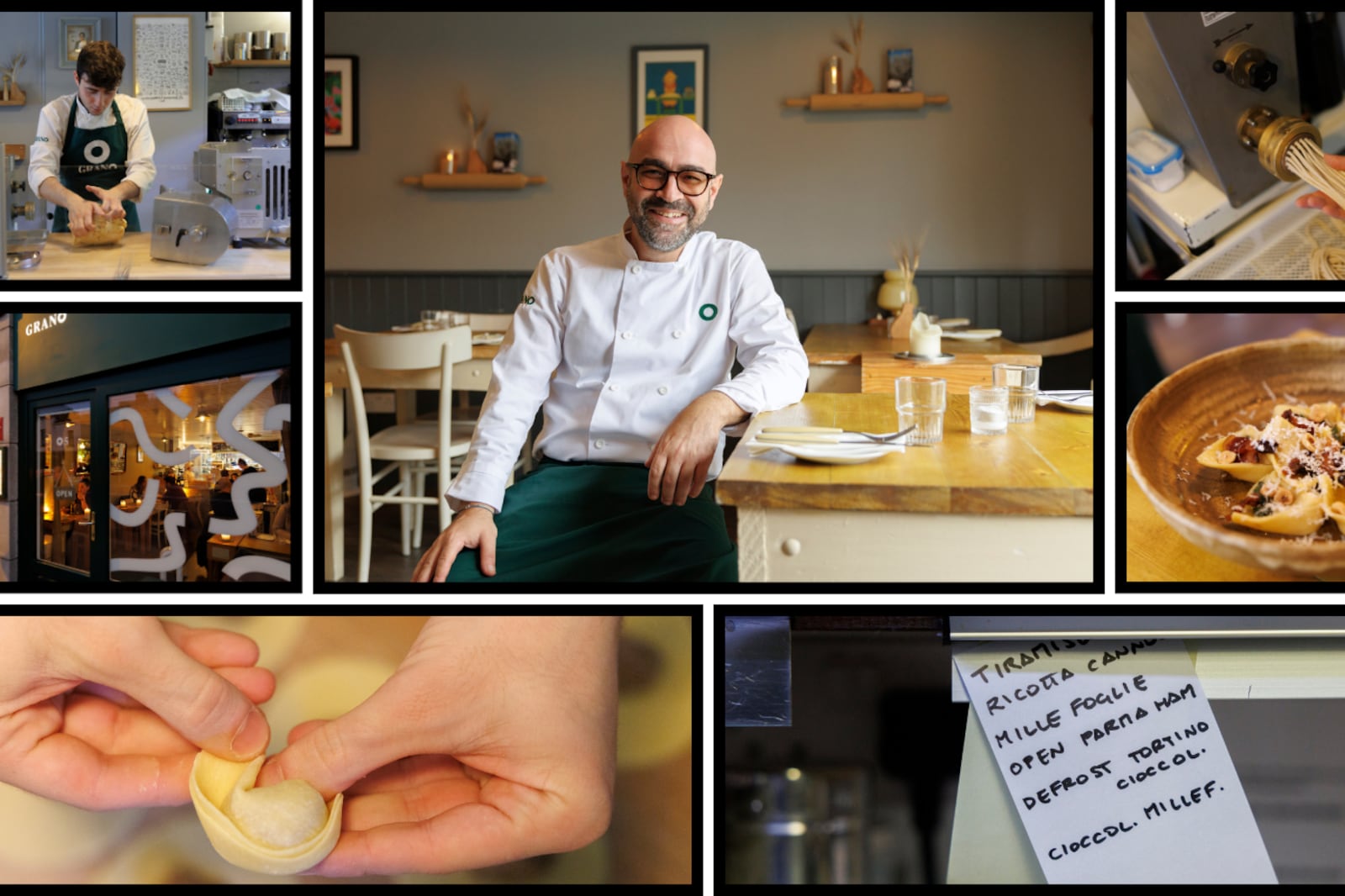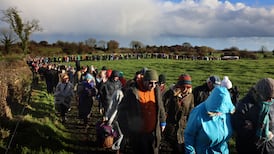The war on Christmas rages in that home of festive cheer, Limerick city. John Moran, the city’s directly elected mayor, cancelled the Christmas market proposed for the area around the statue of Daniel O’Connell, which the council had advanced all the way to publishing a road closure notice. It didn’t seem like the market would be up to scratch, the first citizen felt.
“The proposals were developed late and they came late. I wasn’t happy it was going to be a success. It’s public money, so we decided we would push it off until next year,” he told the Limerick Leader.
“What I would love to do is to start planning the market for next year, next week. You need to get ahead of these things, and that’s part of what I think we need to improve.”
Is no Christmas market better than a bad Christmas market? Locals will have all of December to contemplate that, as they go unwarmed by mulled wine and see their economy unboosted. Christmas markets have proved beloved in the likes of Galway and Waterford, while the Smithfield version in Dublin at least does a good job of unburdening attendees of their money.
READ MORE
The situation in Limerick has led to morale issues at the council as they deal with the novel concept of a top boy saying no to things.
“While it is natural to feel disheartened, it’s important we focus our energy on what we do best,” said council director general Dr Pat Daly in a message to staff. “That is, serving our community with professionalism, integrity and pride."
He went on: “Since June 2024, Limerick City and County Council has undergone a radical transformation. We are pioneers in this space, setting an example for local government nationally.”
Which is to say that there’s a new sheriff in town and not much the formerly all-powerful council can do about it. They weren’t to know he’d be a Grinch.
Dog days are over
It’s been a bad few weeks for fans of rural pursuits. First Heather Humphreys, stout defender of the farming life and the fox hunt, lost the Áras to Catherine Connolly, practitioner of such urban activities as bicycle-commuting and left-wing politics.
Now, it emerges, the headquarters of the Irish Coursing Club (ICC) in Clonmel is up for sale. Coursing involves setting rangy sighthounds out across a field after a hare, culminating (by law) in anticlimax as muzzles prevent the dogs from doing what their genetics no doubt strongly urge them to do.
Coursers, as a rule, say they are actually big fans of hares, needing as they do to ensure a good supply of them for dogs to run after. But hares are getting harder to come by and for us moderns, coursing seems to lack the appeal it may have had in 1916, when the ICC was founded.
The ICC also runs the Greyhound Stud Book for Ireland, meaning owners of the racing sort (including a syndicate of Fine Gael TDs) have long paid the hare-chasers a fee for registration. And public disgruntlement with the greyhound industry has spilled out beyond ardent animal rights activists due to the almost €20m in Government subsidy it was handed in the most recent budget. The coursers get none of this directly, but any money in the greyhound industry is a boon to the ICC
Despite the taxpayer cash – guaranteed by law, unlike money for football, GAA or rugby – dog racing is in a difficult spot. Bans are proliferating across various countries, with Scotland and Wales working on their own and Belfast set to vote on banishing it next week.
No response to queries left with the greyhound gang this week on why they’re moving or where they’re going. Price on application to estate agent Kieran Moynihan for the 946 sq m offices. Zoning allows a range of uses, from childcare to warehousing . . . or even a veterinary surgery.
Winging it

Meanwhile, havoc in the pigeon racing transfer market due to Brexit.
Pigeons, whether elite competitors or the crumb-hungry wild sort, can obviously fly between the UK and Ireland quite freely – no squadron of Dick Dastardlys lies in wait for Strabane pigeons checking out the discarded takeaways of Lifford. And the rules also allow the birds to travel without paperwork from Northern Ireland to Britain, like so many Old Firm fans each weekend.
But, as Ulster Unionist MP Robin Swann points out, things are more complicated in the other direction, where you need to rouse a vet to provide paperwork for each one. Thank the Windsor Framework for that.
“These are healthy, traceable birds, and yet fanciers must go through a time-consuming and expensive process just to bring them home, all while the same birds can fly back across the Irish Sea without any restrictions at all,” Swann says.
“It’s absurd that racing pigeons can fly freely between Great Britain, Ireland and Northern Ireland, but can’t be transported without paperwork.”
Why not just send them off on the wing and follow after them? Racing pigeons only know how to get home, so if you’re buying a new one, it’ll just head back to the loft you got it from. A remarkable skill which enables the sport of pigeon racing in the first place, but a concern if you’re trying to import one from far away.
Stattos triumph

It’s the final day of the League of Ireland today, which means it’s time to revisit a previous edition of Overheard, in which we reported that a squad of overseas statistics nerds had invaded the State’s fantasy football scene, with a concerning level of success.
We are informed by our sources that at the time of writing, all of the top 10 of the League of Ireland fantasy league are part of the shadowy cabal. Their aim is to prove that – to paraphrase John Giles – you don’t necessarily need to know anything about Irish football to outsmart all of its fans using spreadsheets listing players’ expected assists.
Point proven.








